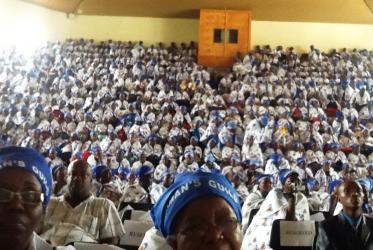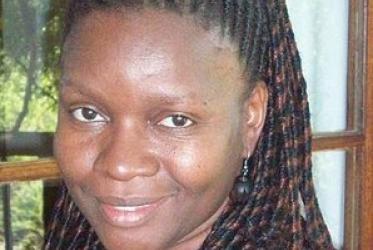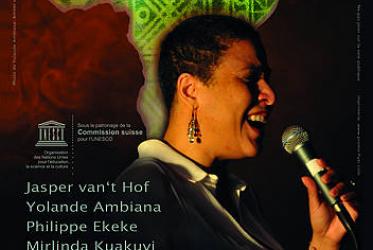Displaying 421 - 440 of 501
11 October 2013
Conference in Kenya addresses women’s concerns
09 September 2013
Inspiring African churches to uphold women's dignity
13 June 2013
WCC urges protection of women’s rights and freedom at UN
25 March 2013
Clergy sexual abuse raised as issue at UN meeting
12 March 2013
Women with disabilities take a stand against violence
08 March 2013
Living with God in the context of HIV and AIDS
27 February 2013
Flash mob for women's rights invades Geneva’s Ecumenical Centre
14 February 2013
Transforming lives affected by HIV and AIDS
13 February 2013
WCC general secretary calls for end to FGM
06 December 2012
Fighting HIV with courage and dignity
05 December 2012
16 Days of Activism to end violence against women
21 November 2012
WCC to host event on female genital mutilation
20 November 2012
Ecumenical advocacy for rights of domestic migrant workers
30 October 2012
Assembly theme explored in new issue of The Ecumenical Review
18 October 2012
Ecumenical response to HIV and sexual violence in Angola
25 September 2012













